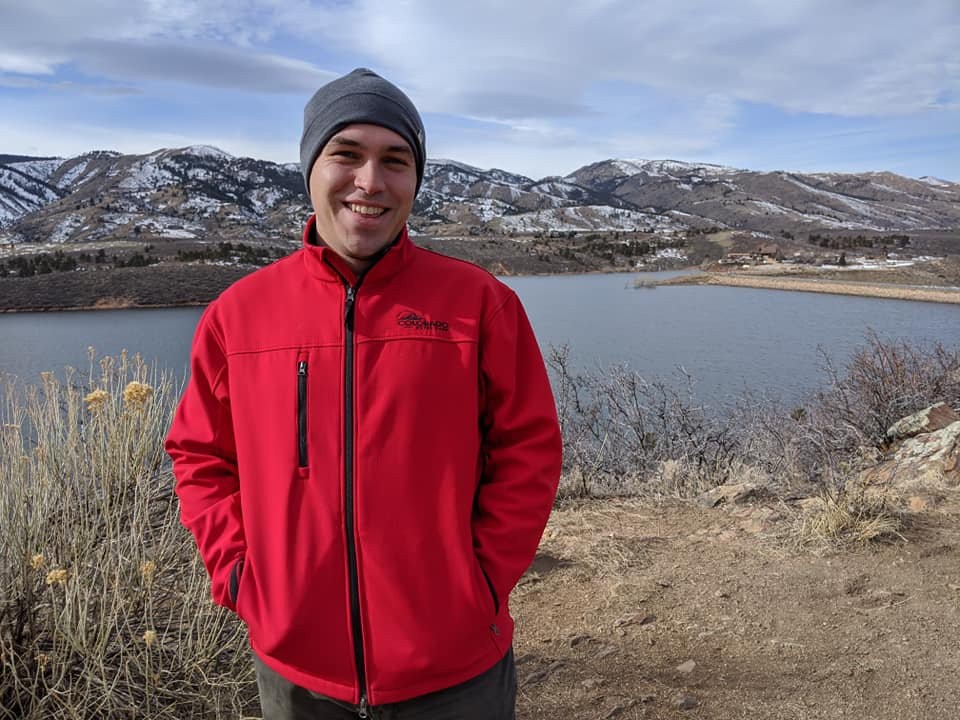Partner Spotlight
How a Retired Marine Found Power and Purpose in Information
Written by Molly Forman on Feb 17, 2020
Related content: Graduate Programs

About five years after retiring from the U.S. Marine Corps, Carlo Mencarelli decided to pursue a master’s degree. Given his hands-on, high-stakes experience with data and equipment, he suspected a typical educational program wasn’t going to be exciting or fulfilling enough for him.
“I wanted a collaborative environment with engaged professors,” said Carlo. “And the curriculum I was looking for was unique. It wasn't traditional computer science or statistics; it was a conglomeration of the two subjects.”
He was able to find only a handful of schools that offered exactly what he was looking for—and iSchool@Syracuse, a program powered by 2U, Inc., was one of them.
Carlo graduated with a Master’s in Applied Data Science from Syracuse University in 2019. We caught up with him to learn more about his professional story, including his time in the U.S. Marine Corps, his experience in the iSchool@Syracuse program, and where he’s going next.
You joined the U.S. Marine Corps shortly after high school. What made you decide to enlist?
After I finished high school, I fell into attending the local community college. I had an idea of what I wanted to do—which was work at a local defense corporation as a computer engineer—but I didn't know how to get there. Before even finishing my general coursework, I decided I wasn't going to achieve my goal in the place I was. I needed to have a stronger purpose in life. So the next day I stopped into the recruiting office and started the process to enlist. I went to boot camp six months later, and completed my technical schooling three months after that.
What kind of foundation did that provide?
The early days of my enlistment gave me an extremely powerful work ethic and the drive to finish any job—no matter what. For about a year, I was one of two people responsible for hundreds of millions of dollars of equipment that the Marine Corps owned and held at the base. In 2011, I was left to assume the full role myself. It was difficult, but the challenge taught me that while nothing can substitute for experience, having all the information necessary, providing the highest possible quality of work, and maintaining a drive for constant improvement can be close surrogates.
Did data play a role in your time in the U.S. Marine Corps?
My job in the Marine Corps was to track equipment records and maintenance personnel and records, and to draft and enforce policies across the detachment. It was an extremely large amount of data to keep track of, let alone analyze and advise on, so I was always working with various tools and methods to improve data accuracy. I didn't know the terms at the time, but this is where I ran into ETL pipelines, data lakes, and BI tooling for the first time.
What compelled you to pursue a master’s degree?
In the Marine Corps, I learned the value of having accurate and reliable information. I also learned how to take large swaths of data and turn them into information that could be used to inform the command's decisions. My undergraduate degree was more focused on business applications than on systems, so I was left wanting to delve deeper into the technical side. I spent a few years as a systems engineer, teaching myself basic methods and predictive models, but eventually I needed to further my knowledge of statistics in order to continue—so I started looking into graduate programs around the country.
Why did you choose an online program?
The primary benefit of doing a master’s degree online was being able to attend the program I wanted without having to move across the country. It was also refreshing to be able to connect nationally with a large group of students who had similar interests and experiences; I don't think I would have been able to get that in a school near me. Later, I was able to leverage my online classroom experience and secure a remote position at my company.
Is there a faculty member or lesson that stands out to you from your experience in the iSchool@Syracuse program?
Jon Fox taught the Big Data Analytics class and brought immense professional experience with him. A lot of the other coursework was theoretical, but he introduced everything through real-life applications and industry trends. It was in his course that we first delved into the topic of the moral responsibilities of data scientists. It really stuck with me that our employer would be taking our results as they were—and trusting that we as experts delivered a high-quality, unbiased report.
What are you up to now, and where do you hope to go in the future?
Right now I'm a senior engineer at NationBuilder, which is a company that provides organization and leadership software for nonprofit and political groups across the world. In the future, I'm hoping to provide what I've been calling "smart advisors" for server performance tuning, security threat auditing, and system log files. It's a growing portion of the industry, and there's a lot left to explore and improve upon. I'm hoping to make an impact.
Looking back on all of your life experiences, what’s the biggest lesson you’ve learned?
You don't know unless you try. I used to struggle with this a lot, but there's truth to the saying that you learn more through failure than success. I've failed plenty of times, trying various things—from statistical model runs to programming tasks to travelling. Each failure has granted me more insight than I likely would have gotten if I had succeeded—and certainly more than if I hadn't tried at all.